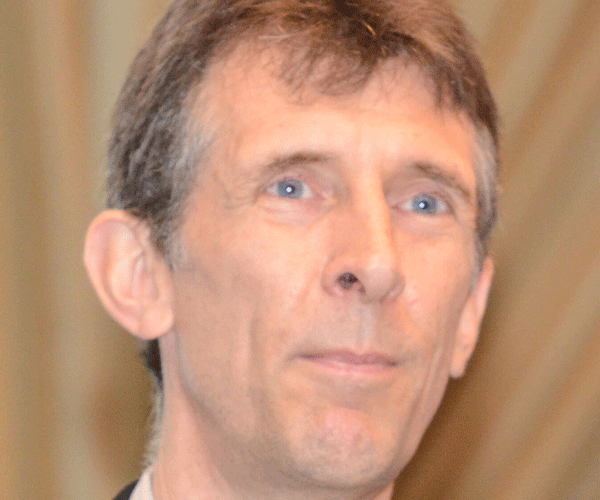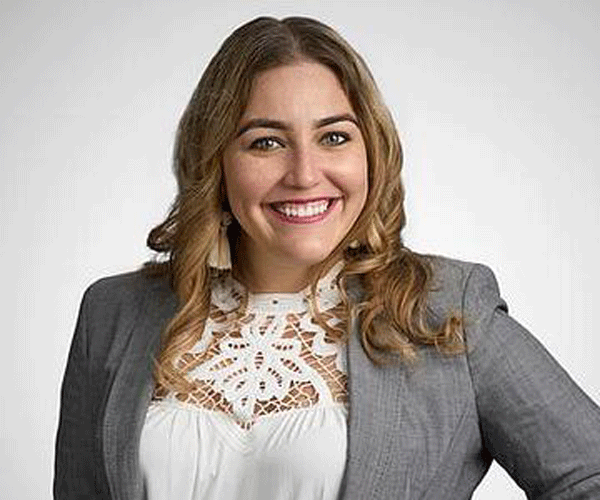
How can countries work together to achieve vaccine equity? Can economic growth be dissociated from biodiversity loss? Can nations that share water resources work together to ensure equitable access to water?
These were only some of the challenging questions that were discussed at the annual science diplomacy course, organized online from 25 July to 3 August by UNESCO-TWAS and the American Association for the Advancement of Science (AAAS).
The course, this year in its ninth edition, tested a new format for the second time in a row. Participants were asked to act in pairs: each early-career scientist had to work with a more expert colleague, either a diplomat or a policy-maker, to test the tools that are important in science diplomacy.
In addition, after setting their own avatar, each participant had to move across a virtual platform called "gather.town", going from one room to another to participate in restricted group activities and in more general presentations, building collaborative relationships that may even last beyond the days of the workshop. Facilitators and moderators helped all along.
"This is the third year we have held our science diplomacy summer course online. For each edition, we have taken lessons learnt from the previous ones and implemented them to make the online learning experience as effective as possible," said Peter McGrath, Coordinator of TWAS Science Diplomacy Unit. "I believe this year's edition has been the best yet, with much more interaction within the participant pairs and among participants, speakers, moderators and staff."
During the ten-day course, more than 20 experts shared their knowledge with 50 participants from 25 countries, including Ethiopia, Ghana, India, Kenya, Malaysia and Nigeria, to name a few. The course had to five thematic sessions: diplomacy for science, science in diplomacy, science for diplomacy, science advice, and careers in science diplomacy.
In the session of 27 July, dedicated to diplomacy for science, moderated by Daan du Toit, Deputy Director-General of the International Cooperation and Resources at the South African Department of Science and Innovation, for example, participants learned about the role of diplomacy in setting up large-scale research infrastructures, with the European Organization for Nuclear Research (CERN) and the Synchrotron-Light for Experimental Science (SESAME) as case studies.
Soon afterwards, the session on science in diplomacy focused on water negotiations and urged participants to reflect on the importance of scientific advice in environmental issues, particularly in connection to scarce resources, like fresh waters, and global commons, like the oceans.
"Most difficulties in water negotiations are due to rigid assumptions about how water must be allocated," said Mounir Ghribi, Director of International Cooperation and Research Promotion at the National Institute of Oceanography and Applied Geophysics, based in Trieste, Italy.
"When countries share boundary waters, quality and scarcity of water resources may cause conflicts at regional level," he added. "Science diplomacy and science policy create a transboundary dialogue and pave the way to directives and conventions that help address challenges at the global level. The scientific community needs to develop the capacity to bring this scientific knowledge to society and support decision makers for the purposes of good governance and thus a more resilient society".
The last three days of the course marked a turning point in the activities: pairs engaged in extensive meetings in gather.town playing the role of different stakeholders who were supporting commercial interests, and then discussed their positions with others in the same group.
During one simulation, for example, it was discussed how to protect rare and endangered species from poachers and illicit trades, with a focus on pangolins—one of the most trafficked mammals in the world.
"We should convince people to reduce the consumption of pangolins, and avoid using them in traditional medicine," maintained Roula Abdel Massih, former Professor at the University of Balamand, Lebanon, and Co-Chair of the Executive Committee of TWAS Young Affiliates Network, when he played the role of a country representative involved in the discussion.
Other attendees, playing the spokesperson for various countries, put economic interests stemming from pangolins trade before environmental issues, while a bogus non-profit organization called for immediate action and coordinated responses from the international community.
In another room, discussions addressed climate issues and the potential of solar radiation management as a tool to cool the planet.
"We understand other countries' positions and the urgency to drop the temperature, but we cannot predict the effect of injecting aerosols in the atmosphere to reflect sunlight into space to cool the planet," said MarÍa Nevia Vera, a faculty member at the Universidad del Centro de la Provincia de Buenos Aires, Centro de Estudios Interdisciplinarios en Problemáticas Internacionales y Locales. "We urge, however, to find consensus among all the parties, as this is a global problem that calls for international collaborations."
Similar round-table discussions were run in the other rooms, where attendees debated the access to vaccines for the next pandemic, building a dam on a transboundary river to solve a national energy crisis, and the sustainability of fisheries versus national interests.
Despite clashing opinions, all participants agreed on the need to cooperate with the other stakeholders, finding converging interests and pursuing win-win solutions. Commitment and honest communication were very important for some of them, while others thought that presenting scientific facts and investing in education were equally important.
"This exercise was very interesting and enlightening," said Luz Cumba García, an immunologist working as a policy advisor at the intersection of biomedical sciences, public policy and diplomacy, whereas Marvadeen Singh Wilmot from the University of The West Indies at Mona, Jamaica, found the simulations "challenging, but the most transformative experience of this course."
And Becky Aloo, a Lecturer in the Department of Biological Sciences at the University of Eldoret, in Eldoret, Kenya, who participated in a simulation on the future of food, playing the role of an African Development Bank delegate, said that the course experience had been one of the most amazing in her career, as it offered different perspectives about science diplomacy and diplomacy in science.
The 2022 edition of the AAAS-TWAS Science Diplomacy course reinforced a partnership that started in 2011, with an ever-increasing participation of diplomats-to-be from the global South. Since 2014, the courses hosted more than 350 alumni from over 50 countries. The COVID-19 pandemic did not put a halt to the initiative. Instead, it has prompted organizers to explore new avenues, which have proved to be very successful.
Cristina Serra

